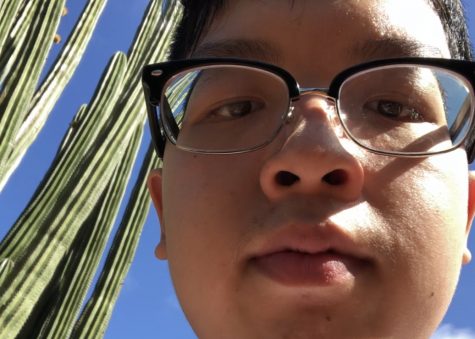Why do I have to do that?
By Justin
Corey Nakashima is a teacher who uses his authority to make learning fun for his students.
February 19, 2021
David is lounging on his bed, thinking about his weekend plans. His phone vibrates and he reaches for his phone on the drawer on his right.
He notices a text message from his mom. “Go to bed, it’s almost midnight.”
David thought “Why do I have to do that?”
David might not be a real person, but you might be having these questions as well. It’s pretty normal to question authority.
One group with perceived authority is teachers and they have authority over their students. Science teacher Mark Dugay said his authority over students comes from his occupation itself and the laws and standards that come with it. Dugay said students may willingly place themselves under teacher authority by how much students are willing to respect him and other teachers. He said his power depends on student respect. He also said his authority should be used in a way that helps the students, not just himself. Being a teacher means making the learning environment stress-free, Dugay said. Doing this can improve teacher-student relationships.
“This authority should be given to people with justice and fairness, especially to students. This teaching authority is important to set boundaries, which promotes the sense of security among the students in the teaching-learning process.” Dugay said
Aristotle says natural hierarchies should determine how people get their authority. Certain groups may be more capable of doing certain tasks than others and are more naturally fit to have authority over another group. Age groups are one of these groups.
“For although, there may be exceptions to the order of nature, … the elder and full-grown is superior to the younger and more immature,” Aristotle says.
We can see how Aristotle’s logic can apply to teachers and students.
Freshman Christian Caoili said authority requires restraint. In other words, people with authority must control it so it doesn’t hurt the other person. Caoili said authority should be more lenient. It could go too far if people start getting hurt.
“If they just spit in your face, just let it go. Don’t go around beating people senseless because they don’t give you the respect [they] should [to a person of a higher authority],” Caoili said.
Caoili’s advice hints at the danger of tyranny. Italian philosopher Thomas Aquinas says tyranny is not a matter of the amount of power but instead the use of that power. Aquinas argues that the ends of authority are to reach the common good of the people rather than being self-serving. Thomas emphasizes the importance of collectivism over individualism.
“For if many men were to live together, with each providing what is convenient for himself, the community would break up into its various parts unless one of them had the responsibility for the good of the community as a whole, just as the body of a man and of any other animal would fall apart if there were not some general ruling force to sustain the body and secure the common good of all its parts,” Aquinas says.
Teachers can use this as a guideline for using their authority without abusing it. Teachers, according to Aquina, should try to achieve the common good of the classroom. The common good could be factors such as minimizing stress, providing students with their essential education, and much more. Dugay said that reaching the common good is beneficial.
“The responsibilities bestowed upon me as a teacher are indispensable. Being a teacher, you need to set a stress-free learning environment which enhances teacher-student interactions as well as student-student interactions in order to establish good rapport and maximize the teaching-learning processes,” Dugay said.





